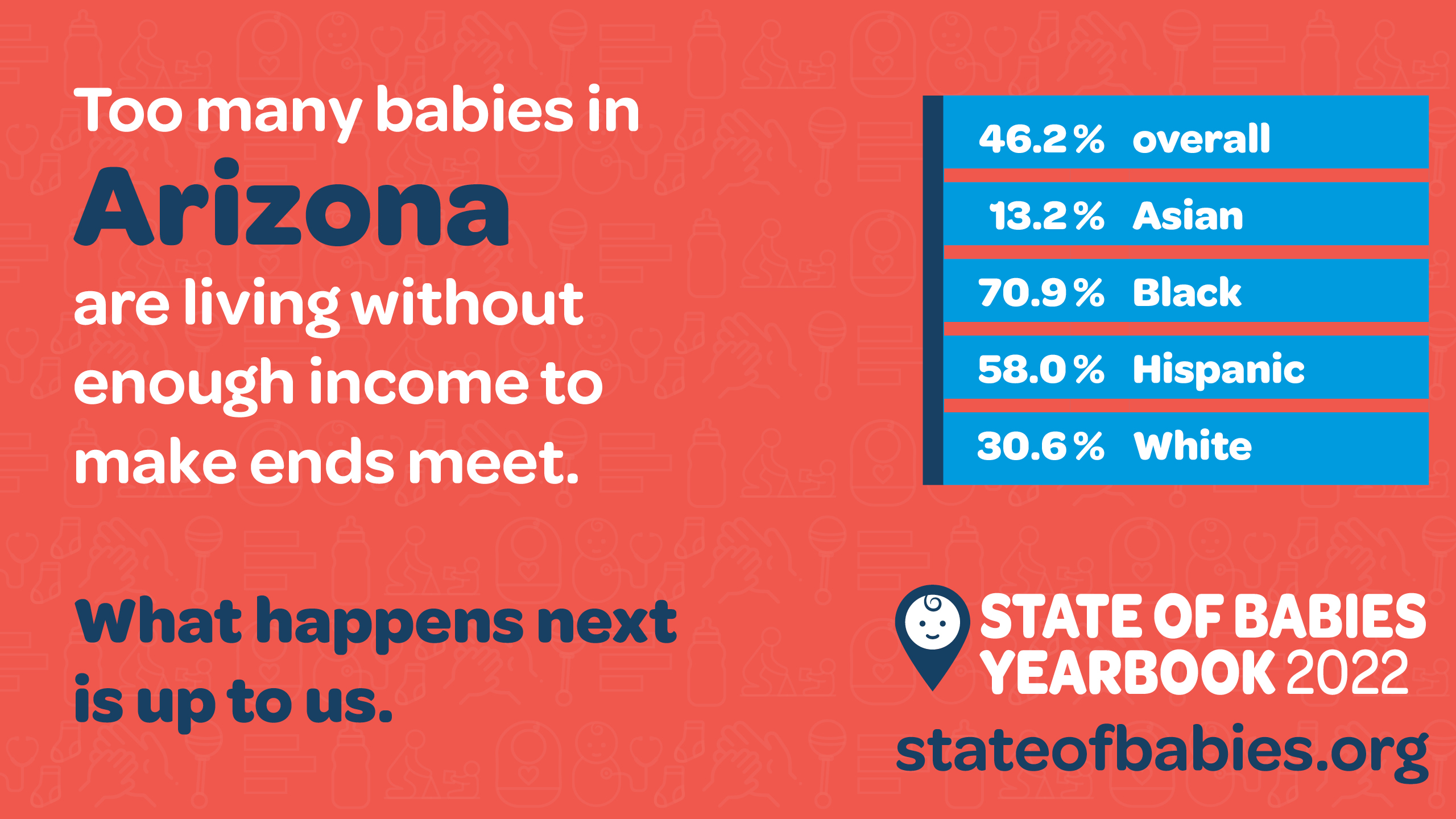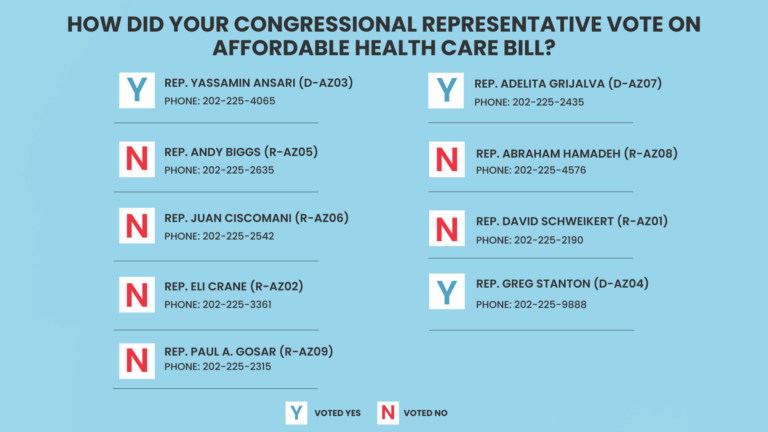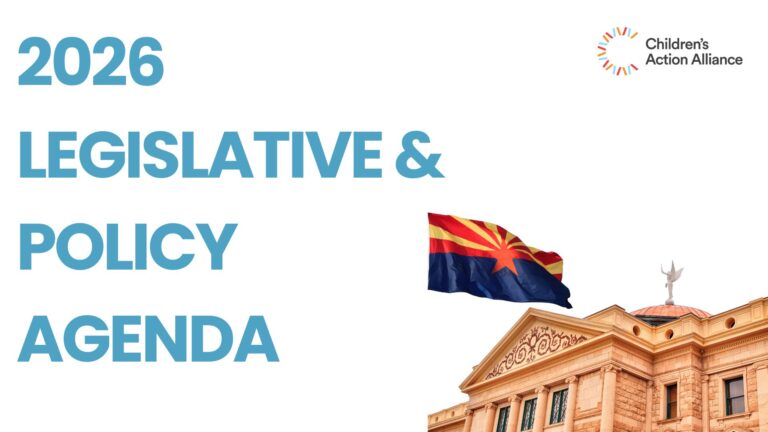
The Data Is In! Babies Need Our Help.
For most of us, it is hard to imagine an entire lifetime lived during a deadly pandemic. As we enter year three of the Covid public health crisis, many Arizonans may feel like it has been forever but for the state’s infants and toddlers it literally HAS BEEN a lifetime. The mental and physical well-being of babies is a powerful indicator of our overall health, and it is looking more and more like our youngest citizens are not all right.
Last week, an initiative of ZERO TO THREE called Think Babies! released the State of Babies Yearbook, an annual report that looks at the national and state-by-state data on the well-being of America’s babies. The Yearbook includes 60 indicators across policy areas known to provide a strong start in life: GOOD HEALTH, STRONG FAMILIES, AND POSITIVE EARLY LEARNING EXPERIENCES. The 2022 Yearbook also includes specialized data collected by the University of Oregon during the pandemic to show how the crisis has affected and continues to affect families with infants and toddlers.
States fall into one of four tiers (for each policy area and overall) based on how they score on selected indicators and implementation of policies that represent their progress towards assuring access to healthcare, paid family and medical leave, quality education, and more. Arizona overall scored in the bottom ranking falling below the national average on most indicators. The one bright spot is in the Good Health area where we scored slightly higher, although our progress has remained unchanged from last year. Babies, infants, crisis, key indicators
Like in other states, children living in families with low income and children of color face the biggest obstacles, created in large part by structural racism and inadequate wages. In Arizona about 46 percent live in households with incomes less than twice the federal poverty line. Babies of color and babies in families with low income are more likely to have experiences that produce chronic stress, which can undermine development. The effects of this toxic stress can last a lifetime. Arizona cannot afford to continue failing its infants, toddlers, and families. The status quo for babies and families before the pandemic was already unacceptable, leaving them particularly vulnerable to crises big and small.
Policy makers can address these problems by
- Investing in high-quality child care
- Enacting permanent paid family and medical leave
- Permanently expanding the Child Tax Credit
- Expanding Early Head Start
- Investing in Infant and Early Childhood Mental Health
- Transforming systems for strong family support
To view the full report:
https://stateofbabies.org/wp-content/uploads/2022/04/State-of-Babies-2022-Yearbook.pdf
To view Arizona specific data:



